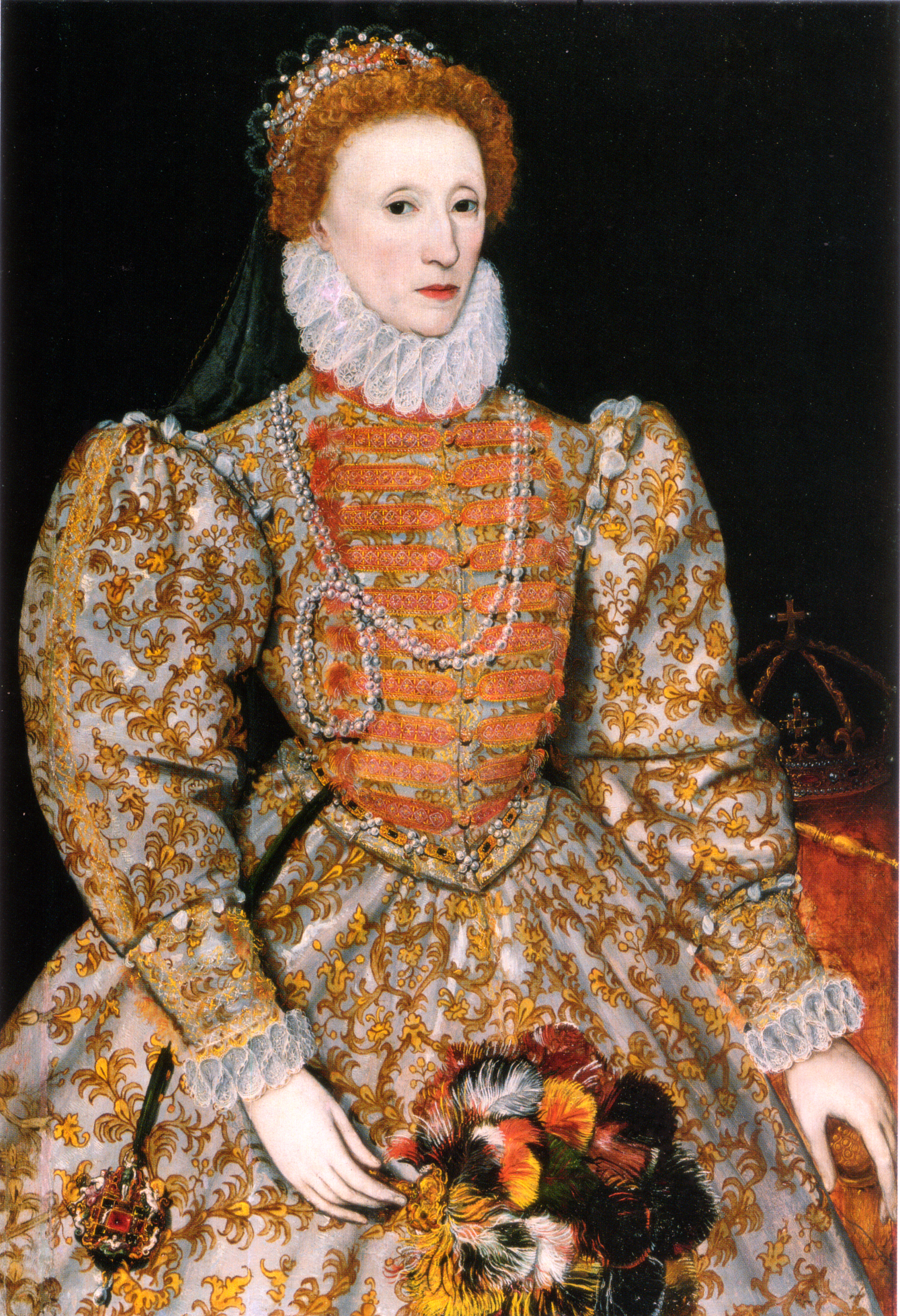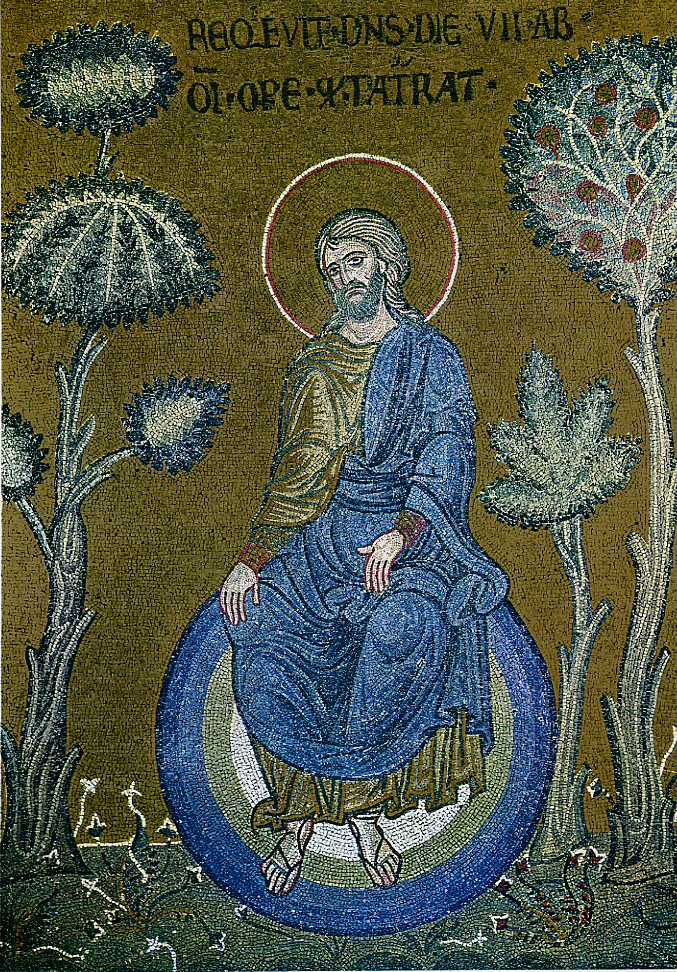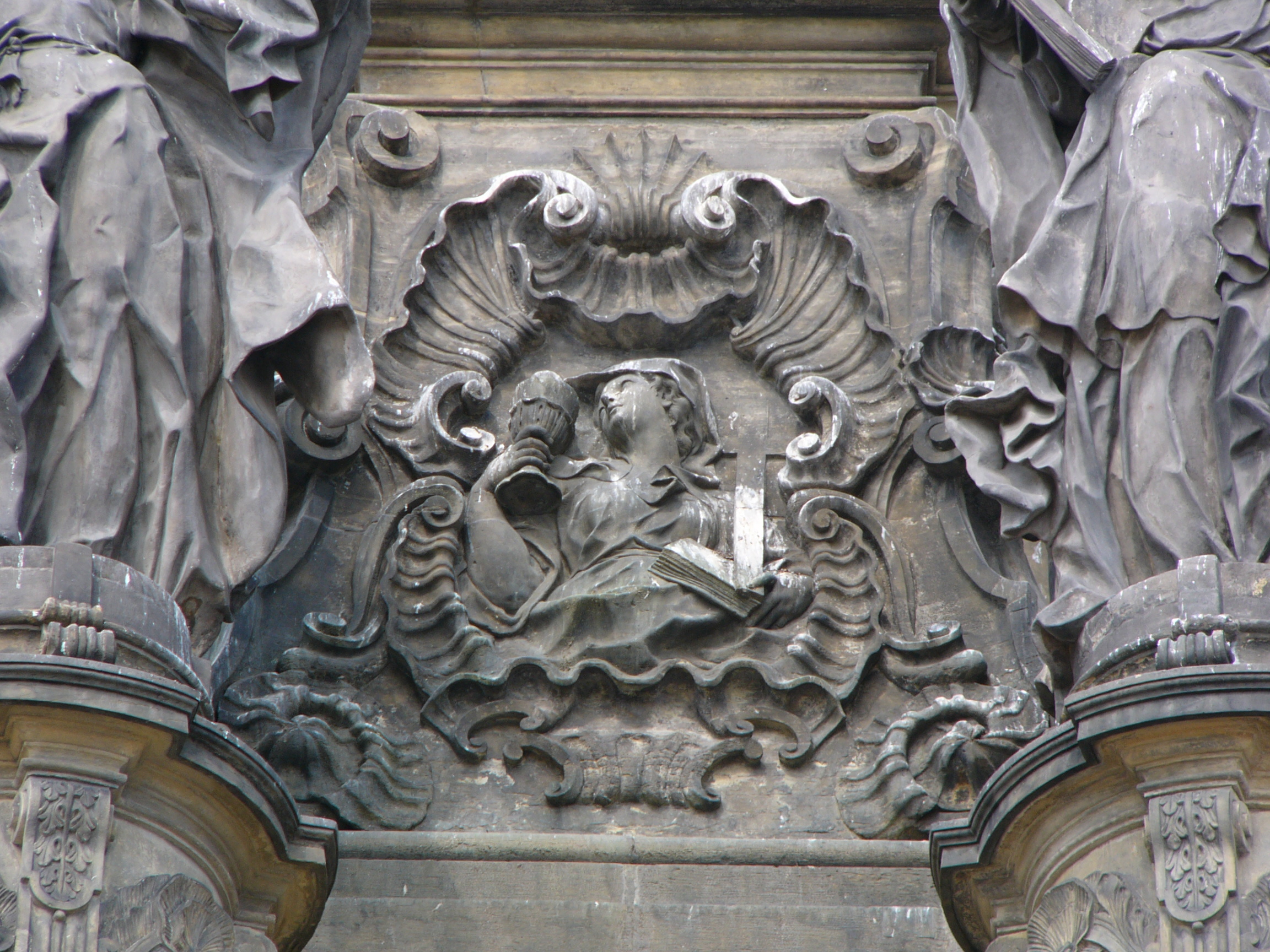|
Lambeth Articles
The Lambeth Articles of 1595 were a series of nine doctrinal statements intended to be an appendix to the Thirty-nine Articles of the Church of England. In response to a controversy over the Calvinist doctrine of predestination, the Lambeth Articles were created to clarify the church's official teaching. Because Queen Elizabeth I refused to authorise the articles, they never went into effect in England. However, they were adopted by the Church of Ireland in 1615. Creation During the reign of Elizabeth I, a Calvinist consensus developed among the leading clergy within the Church of England, specifically in regards to the doctrine of predestination. The church's doctrinal statement, the Thirty-nine Articles, addressed predestination in Article 17 "Of Predestination and Election". While Calvinists believed in double predestination (that God predestined some people for salvation but others for reprobation), Article 17 only endorsed election to salvation. An Arminian minority emerged ... [...More Info...] [...Related Items...] OR: [Wikipedia] [Google] [Baidu] |
Thirty-nine Articles
The Thirty-nine Articles of Religion (commonly abbreviated as the Thirty-nine Articles or the XXXIX Articles) are the historically defining statements of doctrines and practices of the Church of England with respect to the controversies of the English Reformation. The Thirty-nine Articles form part of the ''Book of Common Prayer'' used by the Church of England, the U.S. Episcopal Church, and the Anglican Church in North America among other denominations in the worldwide Anglican Communion and Anglican Continuum. When Henry VIII broke with the Roman Catholic Church and was excommunicated, he began the reform of the Church of England, which would be headed by the monarch (himself), rather than the pope. At this point, he needed to determine what its doctrines and practices would be in relation to the Church of Rome and the new Protestant movements in continental Europe. A series of defining documents were written and replaced over a period of thirty years as the doctrinal and ... [...More Info...] [...Related Items...] OR: [Wikipedia] [Google] [Baidu] |
Dean Of Ely
The position of Dean of Ely Cathedral, in East Anglia, England, in the Diocese of Ely was created in 1541 after the Dissolution of the Monasteries. The first Dean of Ely had been the last Benedictine prior of Ely. List of deans Early modern *1541–1557 Robert Steward (last prior) *1557–1589 Andrew Perne *1589–1591 John Bell *1591–1614 Humphrey Tyndall *1614–1636 Henry Caesar ''or'' Adelmare *1636–1646 William Fuller *1646–1651 William Beale *1660–1661 Richard Love *1661–1662 Henry Ferne *1662 Edward Martin *1662–1667 Francis Wilford *1667–1677 Robert Mapletoft *1677–1693 John Spencer *1693–1708 John Lambe *1708–1712 Charles Roderick *1713–1729 Robert Moss *1729–1730 John Frankland *1730–1758 Peter Allix *1758–1780 Hugh Thomas *1780–1797 William Cooke Late modern *1797–1820 William Pearce *1820–1839 James Wood *1839–1858 George Peacock *1858–1869 Harvey Goodwin (afterwards Bishop of Carlisle, 1869) *1869–1893 Ch ... [...More Info...] [...Related Items...] OR: [Wikipedia] [Google] [Baidu] |
Elizabethan Religious Settlement
The Elizabethan Religious Settlement is the name given to the religious and political arrangements made for England during the reign of Elizabeth I (1558–1603). Implemented between 1559 and 1563, the settlement is considered the end of the English Reformation, permanently shaping the theology and liturgy of the Church of England and laying the foundations of Anglicanism's unique identity. When Elizabeth inherited the throne, England was bitterly divided between Catholics and Protestants as a result of various religious changes initiated by Henry VIII, Edward VI and Mary I. Henry VIII had broken from the Roman Catholic Church and the authority of the pope, becoming Supreme Head of the Church of England. During Edward's reign, the Church of England adopted a Reformed theology and liturgy. In Mary's reign, these religious policies were reversed, England was re-united with the Roman Catholic Church and Protestantism was suppressed. The Elizabethan Settlement was an attempt to e ... [...More Info...] [...Related Items...] OR: [Wikipedia] [Google] [Baidu] |
God In Christianity
God in Christianity is believed to be the God and eternity, eternal, supreme being who Creator god, created and God the Sustainer, preserves all things. Christians believe in a Monotheism, monotheistic conception of God, which is both Transcendence (religion), transcendent (wholly independent of, and removed from, the material universe) and Immanence, immanent (involved in the material universe). Christian teachings on the transcendence, immanence, and involvement of God in the world and his love for humanity exclude the belief that God is of the same substance as the created universe (rejection of pantheism) but accept that God's divine nature was Hypostatic union, hypostatically united to human nature in the person of Jesus in Christianity, Jesus Christ, in a unique event known as "the Incarnation (Christianity), Incarnation". Early Christianity, Early Christian views of God were expressed in the Pauline epistles and the early Christian creeds, which proclaimed one God and the ... [...More Info...] [...Related Items...] OR: [Wikipedia] [Google] [Baidu] |
God The Son
God the Son ( el, Θεὸς ὁ υἱός, la, Deus Filius) is the second person of the Trinity in Christian theology. The doctrine of the Trinity identifies Jesus as the incarnation of God, united in essence (consubstantial) but distinct in person with regard to God the Father and God the Holy Spirit (the first and third persons of the Trinity). Source The phrase "God the Son" is not found in the Bible, but is found in later Christian sources. By scribal error the term is in one medieval manuscript, MS No.1985, where Galatians 2:20 has "Son of God" changed to "God the Son". The term in English follows Latin usage as found in the Athanasian Creed and other texts of the early church: In Greek "God the Son" is ''ho Theos ho huios'' (ὁ Θεός ὁ υἱός) as distinct from ''ho huios'' nominative ''tou Theou'' genitive, ὁ υἱός τοῦ Θεοῦ, " Son of God". In Latin "God the Son" is Deus (nominative) Filius (nominative). The term ''deus filius'' is found in ... [...More Info...] [...Related Items...] OR: [Wikipedia] [Google] [Baidu] |
Grace In Christianity
In Western Christian theology, grace is created by God who gives it as help to one because God desires one to have it, not necessarily because of anything one has done to earn it. It is understood by Western Christians to be a spontaneous gift from God to people – "generous, free and totally unexpected and undeserved" – that takes the form of divine favor, love, clemency, and a share in the divine life of God. In the Eastern Orthodox Church, grace is the uncreated Energies of God. Among Eastern Christians generally, grace is considered to be the partaking of the Divine Nature described in 2 Peter 1:4 and grace is the working of God himself, not a created substance of any kind that can be treated like a commodity.Gregory (Grabbe), Archbishop. ''The Sacramental Life: An Orthodox Christian Perspective.'' Liberty TN: St. John of Kronstadt Press, 1986 As an attribute of God it manifests most in the salvation of sinners and Western Christianity holds that the initiative in th ... [...More Info...] [...Related Items...] OR: [Wikipedia] [Google] [Baidu] |
Jesus
Jesus, likely from he, יֵשׁוּעַ, translit=Yēšūaʿ, label=Hebrew/Aramaic ( AD 30 or 33), also referred to as Jesus Christ or Jesus of Nazareth (among other names and titles), was a first-century Jewish preacher and religious leader; he is the central figure of Christianity, the world's largest religion. Most Christians believe he is the incarnation of God the Son and the awaited Messiah (the Christ) prophesied in the Hebrew Bible. Virtually all modern scholars of antiquity agree that Jesus existed historically. Research into the historical Jesus has yielded some uncertainty on the historical reliability of the Gospels and on how closely the Jesus portrayed in the New Testament reflects the historical Jesus, as the only detailed records of Jesus' life are contained in the Gospels. Jesus was a Galilean Jew who was circumcised, was baptized by John the Baptist, began his own ministry and was often referred to as "rabbi". Jesus debated with fellow Jews on ho ... [...More Info...] [...Related Items...] OR: [Wikipedia] [Google] [Baidu] |
Salvation In Christianity
In Christianity, salvation (also called deliverance or redemption) is the "saving fhuman beings from sin and its consequences, which include death and separation from God In monotheistic thought, God is usually viewed as the supreme being, creator, and principal object of faith. Swinburne, R.G. "God" in Honderich, Ted. (ed)''The Oxford Companion to Philosophy'', Oxford University Press, 1995. God is typically ..." by Christ's death and Resurrection of Jesus, resurrection, and the Justification (theology), justification following this salvation. While the idea of Jesus' death as an atonement for human Christian views on sin, sin was recorded in the Christian Bible, and was elaborated in Pauline epistles, Paul's epistles and in the Gospels, Paul the Apostle, Paul saw the faithful redeemed by participation in Jesus' death and rising. Early Christians regarded themselves as partaking in a New Covenant, new covenant with God, open to both Jews and Gentiles, through the sacr ... [...More Info...] [...Related Items...] OR: [Wikipedia] [Google] [Baidu] |
Assurance (theology)
As a general term in theological use, assurance refers to a believer's confidence in God, God's response to prayer, and the hope of eternal salvation. In Protestant Christian doctrine, the term "assurance", also known as the Witness of the Spirit, affirms that the inner witness of the Holy Spirit allows the Christian disciple to know that he or she is justified. Based on the writings of St. Augustine of Hippo, ''assurance'' was historically a very important doctrine in Lutheranism and Calvinism, and remains a distinguishing doctrine of Methodism and Quakerism, although there are differences among these Christian traditions. Hymns that celebrate the witness of the Holy Spirit, such as "Blessed Assurance" are sung in Christian liturgies to celebrate the belief in assurance. John Wesley and Methodism John Wesley believed that all Christians have a faith which implies an ''assurance'' of God's forgiving love, and that one would feel that ''assurance'', or the "witness of the Spirit ... [...More Info...] [...Related Items...] OR: [Wikipedia] [Google] [Baidu] |
Christian Views On Sin
In Christianity, sin is an immoral act considered to be a transgression of divine law. The doctrine of sin is central to the Christian faith, since its basic message is about redemption in Christ. Hamartiology, a branch of Christian theology which is the study of sin, describes sin as an act of offence against God by despising his persons and Christian biblical law, and by injuring others. Christian hamartiology is closely related to concepts of natural law, moral theology and Christian ethics. According to Augustine of Hippo (354–430) sin is "a word, deed, or desire in opposition to the eternal law of God," or as scripture states, "sin is the transgression of the law." Among some scholars, sin is understood mostly as legal infraction or contract violation of non-binding philosophical frameworks and perspectives of Christian ethics, and so salvation tends to be viewed in legal terms. Other Christian scholars understand sin to be fundamentally relational—a loss of love ... [...More Info...] [...Related Items...] OR: [Wikipedia] [Google] [Baidu] |
Good Works
In Christian theology, good works, or simply works, are a person's (exterior) actions or deeds, in contrast to inner qualities such as grace or faith. Views by denomination Anglican Churches The Anglican theological tradition, including The Church of England, The Episcopal Church (United States), and others in the worldwide Anglican Communion as well as those who have broken away from communion but identify with the tradition, contains within it both Protestant and Catholic perspectives on this doctrine. On the Protestant side, the historic Thirty-nine Articles (1571) quoted in the Book of Common Prayer contain Article XI which states that "We are accounted righteous before God, only for the merit of our Lord and Savior Jesus Christ by faith and not for our work or deservings" ( BCP, p. 870). Some Anglican Churches, such as the Church of England, still require clergy to affirm their loyalty to the Articles, while many others such as the Episcopal Church in the US do not ... [...More Info...] [...Related Items...] OR: [Wikipedia] [Google] [Baidu] |
Faith In Christianity
Within Christianity, faith, in one sense, is often discussed in terms of believing God's promises, trusting in his faithfulness, and relying on God's character and faithfulness to act. Some denominations believe in the New Covenant and in the doctrine of salvation by faith alone (''sola fide''). According to most Christian traditions and denominations, Christian faith requires a belief in the resurrection of Jesus, and the Agony in the Garden which Jesus states is the plan of God the Father. Since the Protestant Reformation of the 16th century the meaning of the term "faith" has been an object of major theological disagreement in Western Christianity. The differences have been largely overcome in the Joint Declaration on the Doctrine of Justification (1999).The precise understanding of the term "faith" differs among the various Christian traditions. Despite these differences, Christians generally agree that faith in Jesus lies at the core of the Christian tradition, and that su ... [...More Info...] [...Related Items...] OR: [Wikipedia] [Google] [Baidu] |






.jpg)

